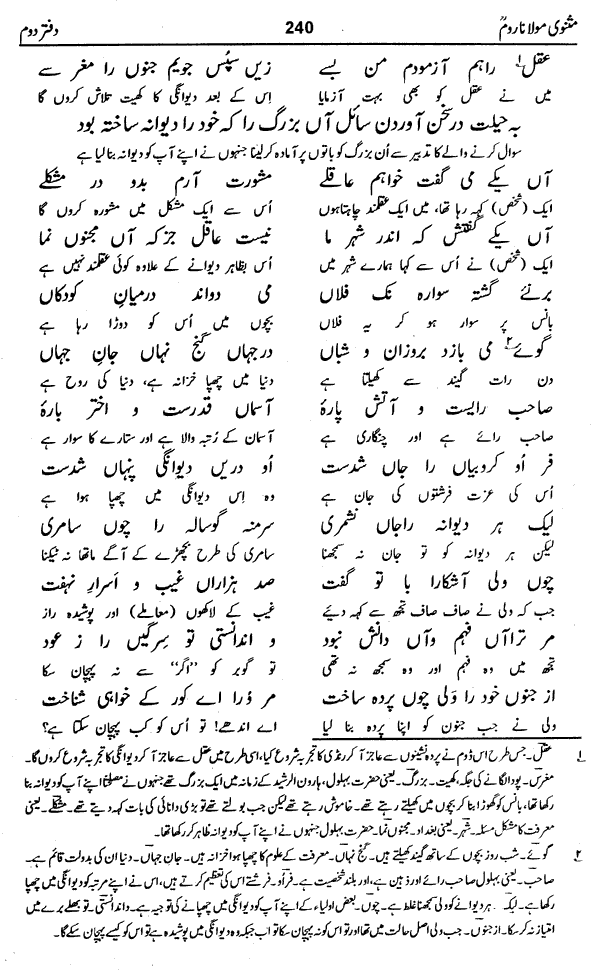How an inquirer managed to draw into conversation an eminent (saintly) man who had feigned to be mad.
A certain man was saying, “I want some one of intelligence, (that) I may consult him about a difficulty.” One said to him, “In our city there is nobody of intelligence except yonder man who appears to be mad.
But you must not account every madman a (rational) soul: do not, like Sámirí, lay down your head (in worship) to a calf.
When a manifest saint has declared unto you hundreds of thousands of unseen things and hidden mysteries,
How, when the saint has made for himself a veil of madness, will you recognise him, O blind one? If your eye of intuitive certainty is open, behold a (spiritual) captain under every stone.
To the eye that is open and (as) a guide, every dervish-cloak has a Moses in its embrace.
It is only the saint (himself) that makes the saint known and makes fortunate whomsoever he will.
When a seeing thief steals from a blind man, can he at all detect (the identity of) the thief (who is) in the act of passing? The blind man does not know who it was that robbed him, even though the wicked thief may knock against him.
When a dog bites a blind ragged mendicant, how should he recognise that ferocious dog?


No comments:
Post a Comment